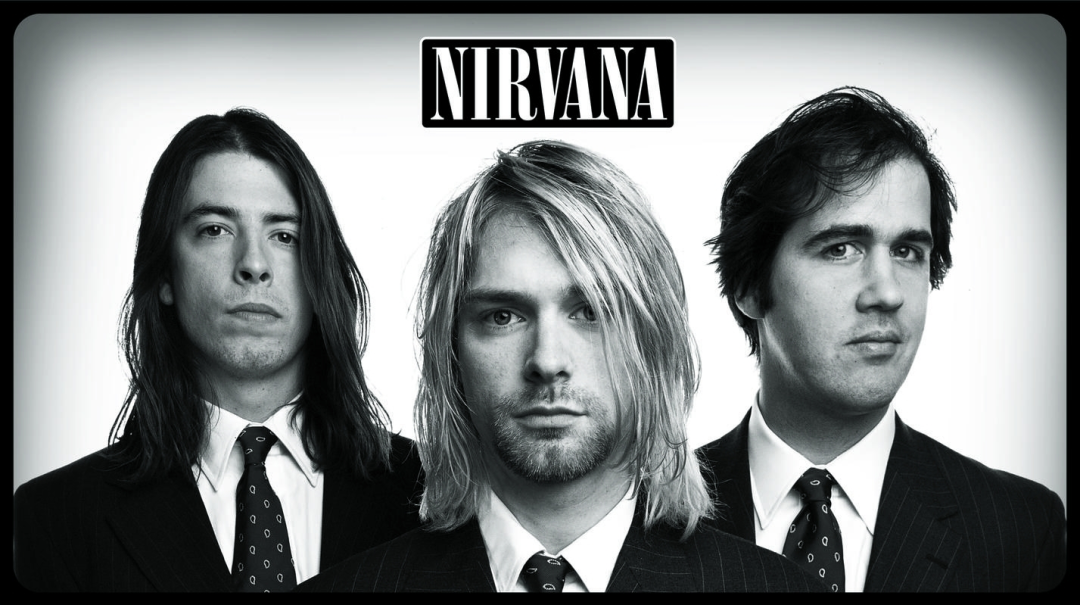dreamabodefinder.com – Nirvana, the Seattle-based band formed in 1987, is more than just one of the most influential rock bands of all time—it’s a symbol of rebellion, raw emotion, and a revolution in sound. Their impact on the music industry and popular culture remains unparalleled, shaping not only the direction of rock music in the 1990s but also the ethos of an entire generation. With their unmistakable blend of punk, heavy metal, and alternative rock, Nirvana became the defining voice of the “grunge” movement and helped usher in a new era of mainstream rock music.
The Birth of Nirvana: Forming the Sound of a Generation
Kurt Cobain (vocals and guitar) and Krist Novoselic (bass) founded Nirvana in Aberdeen, Washington, in 1987. The two musicians, driven by a shared love for punk rock, post-punk, and heavy metal, formed a band that was both loud and introspective, abrasive yet melodic. Early on, they went through a series of drummers before settling on Chad Channing in 1988. However, the lineup truly came together when Dave Grohl, previously of the punk band Scream, joined Nirvana in 1990 as the drummer. Grohl’s arrival would provide the rhythmic backbone that helped solidify the band’s sound.
From the very beginning, Nirvana’s music was about more than just playing loud, fast rock. It was about expressing the angst, confusion, and disillusionment that many young people felt during the late ’80s and early ’90s. Their music was both accessible and raw, touching on themes of alienation, emotional turmoil, and anti-authoritarianism. It was this authenticity and vulnerability that would resonate with millions of fans around the world.
The Breakthrough: ‘Nevermind’ and the Grunge Revolution
In 1991, Nirvana released Nevermind, an album that would go on to redefine not only the band’s career but the entire music landscape. Produced by Butch Vig, Nevermind was a departure from the band’s initial lo-fi sound on Bleach (1989). With its polished production, catchy melodies, and thunderous guitar riffs, the album bridged the gap between underground alternative rock and mainstream audiences.
The album’s breakout single, “Smells Like Teen Spirit,” became a global phenomenon. Often referred to as the anthem of Generation X, the song’s explosive energy and emotionally raw lyrics captured the frustration and disillusionment of youth in the early ’90s. Cobain, with his distinctive voice—part scream, part whisper—created a sense of authenticity and honesty that had been lacking in mainstream rock for years. Nirvana’s success on Nevermind wasn’t just about the music; it was about giving voice to a generation that felt unheard.
The success of Nevermind also helped launch the Seattle music scene, which would come to be known as “grunge.” Along with bands like Pearl Jam, Soundgarden, and Alice in Chains, Nirvana was at the forefront of the movement that blended elements of punk, heavy metal, and alternative rock. Grunge’s ethos—anti-fashion, anti-commercialism, and a general disregard for the polished aesthetics of the mainstream—was perfectly encapsulated in Nirvana’s image and sound.
The Legacy of ‘In Utero’ and the End of an Era
After the immense success of Nevermind, Nirvana faced the pressure of living up to the expectations that came with their newfound fame. In Utero (1993), their third and final studio album, was a reaction to this pressure. Produced by Steve Albini, In Utero was a stark contrast to Nevermind’s polished sound. It was raw, abrasive, and experimental, showcasing the band’s willingness to embrace discomfort and challenge their audience. The album included hits like “Heart-Shaped Box” and “All Apologies,” which became staples of the band’s live shows.
Despite the critical acclaim and commercial success of In Utero, Cobain’s personal struggles—ranging from his battle with chronic pain to his growing dissatisfaction with fame—were beginning to take a toll on him. On April 5, 1994, Kurt Cobain was found dead in his Seattle home, the victim of an apparent suicide. The loss of Cobain at the age of 27 marked the end of Nirvana as a band, but it also cemented his legacy as one of rock’s most iconic and tragic figures.
Nirvana’s Enduring Influence
In the years following Cobain’s death, Nirvana’s influence has only grown. The band’s music continues to resonate with new generations of listeners, and Nevermind remains a touchstone of 1990s rock. Nirvana is often cited as one of the greatest and most important bands in the history of rock music. Their raw sound, unapologetic approach to fame, and fearlessly emotional lyrics redefined what it meant to be a rock band in the 1990s and beyond.
The impact of Nirvana is felt in many areas of music. Their success helped bring alternative rock and indie bands into the mainstream, shifting the musical landscape away from the glam metal and pop-dominated radio of the ’80s. Nirvana’s influence can be heard in bands ranging from modern alt-rock groups like the Arctic Monkeys and the Strokes, to heavier acts like Linkin Park and even the emo and pop-punk movements of the 2000s.
Additionally, Kurt Cobain’s songwriting has been celebrated for its emotional depth and introspective nature. While his lyrics often remained cryptic and abstract, they conveyed universal feelings of isolation, insecurity, and yearning. Cobain’s willingness to be vulnerable in his music, while rejecting the expectations of celebrity culture, resonated deeply with listeners, particularly in an era where superficiality often ruled the mainstream.
The Iconic Legacy of Nirvana
Despite their brief time together, Nirvana’s legacy endures through their music, their cultural impact, and the indelible mark they left on the rock genre. Cobain’s tragic death may have ended the band, but Nirvana’s contribution to rock history remains immeasurable. Nirvana’s journey—from their humble beginnings in Seattle to global stardom—illustrates the power of authenticity and the undeniable strength of music as a form of self-expression.
Today, Nirvana is regarded not only as a cultural touchstone of the ’90s but also as one of the most important rock bands in history. Their sound continues to inspire countless musicians, and their influence stretches far beyond the confines of the rock genre. Nirvana’s ethos—a fusion of vulnerability, angst, and rebellion—has made them timeless icons whose music will continue to resonate for generations to come.
In the end, Nirvana wasn’t just a band; they were a movement, and their legacy is firmly cemented as one of the defining pillars of modern rock music.





